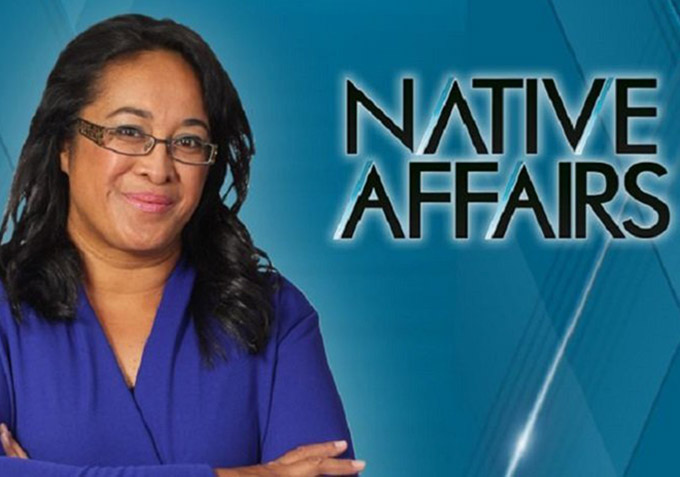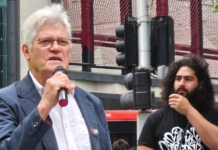
Pacific Media Watch Newsdesk
Native Affairs journalist Iulia Leilua of Māori Television has won two major awards at the 2018 Ngā Kupu Ora Awards.
Leilua is the winner of the Ngā Kupu Ora Māori Journalism Award and has been named Māori Journalist of the Year for 2018.
Her success is due to a story she covered in 2017 based on the investigation into the treatment of children in state care. The two-part exclusive involves a mother who bares it all, to tell us why she believes the State took her children unfairly.
VIEW HERE:
Parents v State Care – Part 1
Parents v State Care – Part 2
Leilua and the Native Affairs team presented a case which has arguments on all sides – the rights of the parent versus the role of the state.
Leilua is also on the advisory board of the Pacific Media Centre and the industry panel of the School of Communication Studies at Auckland University of Technology.
Other finalists in the Māori Journalism Award category included Native Affairs presenter and journalist Oriini Kaipara for her exclusive story on a girl stopped from attending her kura kaupapa by order of the Family Court.
TVNZ’s Kereama Wright was also a finalist for his investigation into the issue of paedophiles who still hold sway on the paepae.
Many te reo Māori entries
This year saw more te reo Māori entries which outnumbered these submitted in the English category.
Te Karere reporter Rapaera Tawhai was the winner of the te reo Māori category for his feature story on the contest for the Waiariki seat in the 2017 general election.
Dr Haare Williams, MNZM was this year’s recipient of the Te Tohu a Tanara Whairiri Kitawhiti Ngata, Lifetime Achievement Award for his passionate service to Māori journalism, broadcasting and education.
Dr Haare Williams is a teacher, artist, and broadcaster who has made a significant contribution throughout his career to bettering the educational attainment and social and cultural outcomes of Māori.
As an executive director of the New Zealand 1990 Commission, Dr Williams was responsible for waka construction and assembly at Waitangi for the 1990 commemorations.
He set up a joint venture with the South Seas Film and Television School to train te reo speakers as producers and operators in film and television. He taught at Unitec from 1994 to 2002, first as a tutor and then as dean of Māori education, before becoming the first Māori adviser to the chief executive.
Williams has contributed to education through curricula development and broadening understanding around Te Ao Māori and the Treaty of Waitangi. He was a pioneer in Māori broadcasting as the general manager of Aotearoa Radio.
He has worked closely with iwi claimant communities collecting and preparing iwi oral testimonies for presentation to the courts and the Waitangi Tribunal.
The awards were preceded by the National Māori Journalism Hui which brought together media industry and academics to discuss issues facing Māori journalism.
Republished from Māori Television’s website.











































